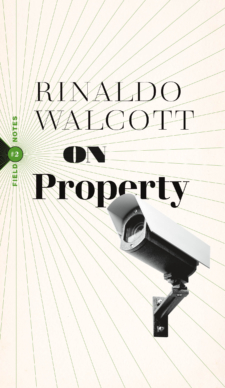Description
Hail, The Invisible Watchman is haunted poetry—Oliver’s formal schemes are as tidy as a picket-fence and as suggestive; behind the charm of rhyme is a vibrant, dark exploration of domestic and social alienation.
The poems in Hail, the Invisible Watchman are as tidy as a picket-fence—and as suggestive. Behind the charms of iambs lurks a dark exploration of domestic and social alienation. Metered rhyme sets the tone like a chilling piano score as insidiousness creeps into the neighbourhood. A spectral narrator surveils social gatherings in the town of Sherbet Lake; community members chime in, each revealing their various troubles and hypocrisies; an eerie reimagining of an Ethel Wilson novel follows a young woman into a taboo friendship with an enigmatic divorcée. In taut poetic structures across three succinct sections, Alexandra Oliver’s conflation of the mundane and the phantasmagoric produces a scintillating portrait of the suburban uncanny.
From “She Burns the Motel”
“I leave the bedside crawling;
my instinct says I’m stalling
but, though my God is calling,
I cannot find Him here.
The bills and lawns and houses,
the power mowers and guns,
the boats and Sunday blouses,
grey groups of girls and sons;
there are words the others won’t utter,
they gorge on beer and butter,
and while they hide and sputter,
the lost one burns and runs.”
Praise for Hail, the Invisible Watchman
“Oliver is a master of the punchy satirical pronouncement … Her allusions are always exquisitely peppered, not merely clever mélanges of this and that, and her structures impeccable.”—Marrow Reviews
“Alexandra Oliver, Canada’s sublime formal poet, grabs centuries-old traditions by the throat and gives them a huge contemporary shaking in Hail, the Invisible Watchman. Terrifyingly clever, dazzlingly skilled, and chillingly accurate in her social observations, she plunges from lyric to narrative and back again in this, her third volume, where a housewife has ‘a waist like a keyhole’ and a ‘good mood’ has a ‘scent.’ But as wearing the perfect clothes can hide—for just so long—the wackiness of the personality beneath, the poet’s impeccable meters explode with desperate emotions. Oliver’s triumph comes as she takes the characters of a 1947 novel about a scandal and drops them into a stunning sonnet sequence. With Hail, the Invisible Watchman Oliver again alters the landscape of Canadian poetry.” —Molly Peacock, author of The Analyst
Praise for Alexandra Oliver
“An incredible feat of vision and voice … technically, nothing is out of Oliver’s grasp. Her go-to iambic pentameter can swallow anything in its path. Meeting the Tormentors in Safeway should go a long way toward establishing Oliver as one of the country’s best stanza makers, with a fluidity and ambition aspiring to Dylan Thomas or Yeats … When she succeeds, she succeeds entirely.” —The National Post
“Although Oliver has moved beyond performance, she remains a standout, an outlier in the CanPo sphere. One of the most exciting things about her work is the way she takes a different route from the in-your-face newness and hybridity our market now demands. Oliver joins Canadian poets like Amanda Jernigan and Kerry-Lee Powell in a kind of feminist formalism.” —Danny Jacobs, The Walrus
“In their observations of women in particular social environments, the poems share some ground with early work of PK Page, and Oliver’s sure hand with formal elements places her work alongside contemporaries like Marilyn Hacker … Most of the poems repay close reading with pleasures: a precise observation, an enduring question, an emotional connection … for sureness, clarity and precision like cut crystal, you’d do well to look here.” —Susan Gillis, Arc Poetry Magazine
“Brilliantly contemporary poems in traditional forms, the work of a stunning new voice.” —Charles Martin, author of Unwritten
“Alexandra Oliver has many arrows in her quiver—all of them sharpened to a fine point. This is an excellent and entertaining collection.” —Timothy Steele, author of Sapphics Against Anger and Other Poems
“Alexandra Oliver is in full command of a sober wit and impeccable ear. Lucky the reader along for the ride.” —Jeanne Marie Beaumont, author of Placebo Effects








